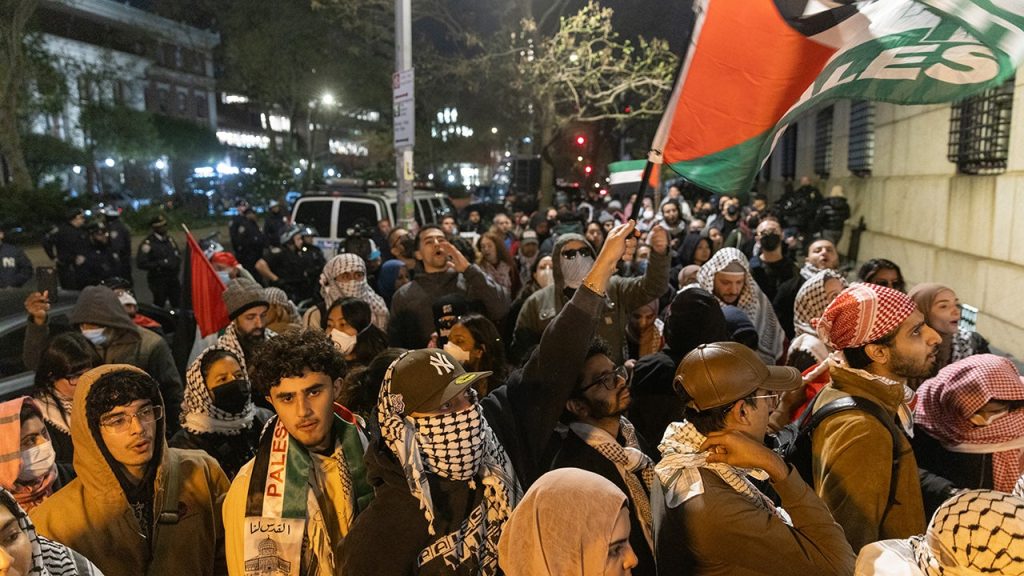Anti-Israel sentiment is rising on college campuses, with large groups of students at schools like Cornell University chanting for an intifada. Cornell professor William Jacobson points out that this movement is not about peace or coexistence, but an uncompromising rejectionist ideology that seeks to eliminate the existence of a Jewish state in the Middle East. Jacobson is concerned that the administrations at schools like Cornell and Columbia are not doing enough to ensure the safety of students and faculty. He attributes this rise in anti-Israel sentiment to a failure by the administrations to address and counteract radicalization on campus.
Jacobson argues that the radicalization on college campuses has been building for some time, fueled by aggressive anti-racism programs that target individuals based on their ethnicity and race. He believes that the rhetoric and actions of the anti-Israel movement are intimidating and may lead to violence. Jacobson is particularly disturbed by a Cornell professor who expressed exhilaration over a Hamas terror attack that resulted in the deaths of civilians. He fears that the escalation of vitriolic chants and demonstrations on campus may eventually lead to violent actions.
The unrest at Cornell has raised concerns among faculty and students about the safety of Jewish individuals on campus. Jacobson stresses the need for the administrations of these universities to take action and address the underlying hatred and extremism that is present in the anti-Israel movement. He argues that the campus environment needs to be made safer for all students, regardless of their background or beliefs. Jacobson calls on the schools to hold individuals accountable for their actions and rhetoric, and to confront the destructive ideology that is prevalent among a vocal minority on campus.
The rise of anti-Israel sentiment on college campuses has been met with calls for action from concerned individuals like Jacobson. He believes that the movement represents a death cult ideology that is ultimately harmful to society as a whole. Jacobson wants the true nature of this movement to be exposed and addressed by the schools and the broader community. He urges people to recognize the hatred that underlies the supposed peace movement and to engage in conversations about how to counteract it. Jacobson envisions a safer and more inclusive campus environment that does not tolerate intimidation or violence.
The Cornell University community has been embroiled in controversy over remarks made by one of its professors celebrating a Hamas terror attack. The professor, Russell Rickford, faced backlash for his comments and subsequently took a leave of absence. Despite this, Rickford was seen participating in a recent protest at Cornell University. Jacobson criticizes the university for failing to take swift and decisive action in response to the rhetoric and actions of individuals like Rickford. He believes that the schools need to do more to address and root out extremism in order to create a safer environment for all students.
In conclusion, the escalation of anti-Israel sentiment on college campuses, including at Cornell University, has raised concerns about safety and extremism. Jacobson’s warnings about the aggressive and potentially violent nature of the movement are a call to action for universities to address radicalization on their campuses. He advocates for a more inclusive and tolerant environment that respects the diversity of beliefs and backgrounds among the student body. Jacobson’s concerns echo those of many who are alarmed by the rise of hateful rhetoric and actions in academic settings.













